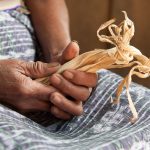Redefining Motherhood: Parenting Beyond Stereotypes
Photo by Janko Ferlič/Unsplash
By Hayley Aikman
When you think of mothers, who do you envision?
In New Zealand, and probably most places, the answer to this question is multifaceted. Often, people resort to stereotypes: the soccer mom yelling support from the sidelines, the cool mom letting you stay up past 10 p.m., the strict mom making you eat wholegrain sandwiches against your will.
Something almost all the stories have in common is the gender and sexuality of their protagonists. In New Zealand, a settler colonial state with nuclear family ideals, mothers are always women, and they are always straight. Or, at least, that is what reigning pākehā* ideologies and representations tell us.
In 2017, my honours research drew me toward looking at how lesbian parents experience gender expectations in New Zealand. The sizable response I received when I reached out for participants was surprising—it was obvious that many felt the topic needed more visibility. Now, in my master’s, I am continuing research on this topic, looking at the way motherhood ideologies shape the experiences of mothers who identify outside heterosexuality.
Those I talk to outside of my progressive city bubble often seem surprised by my research. According to Stats NZ, in 2014 there were 2,340 women in same-sex relationships with children in New Zealand; the legalization of same-sex marriage in 2013 and the introduction and normalization of new reproductive technologies means that the visibility of these families is likely to rise. Despite this, non-heterosexual mothers are noticeably absent from New Zealand’s dominant familial narratives. Their invisibility reflects how they differ from their heterosexual counterparts in the relationships they hold, and therefore are not included in mainstream images of motherhood.
Mothers are primarily defined by relationship to their children; most of us believe that a woman becomes a mother because she has a child. This also reflects the biological norms that play out in parenting ideologies. Many of the ideas we have around what it means to be a mother relate to biology. Conception and pregnancy are part of our parenting culture, with rituals like pregnancy announcements, baby showers and gender reveals all emphasizing the biological relationship between becoming a mother and creating a child.
When I talk about my research specifically on same-sex female couples, I am often asked, “but who is the real mother?” (the parent who is genetically related to the child). Some couples engage with the biological expectations of parenting in unique ways, such as using one woman’s egg and then using the other’s uterus to carry the baby. Ultimately, though, they still need a sperm donor to conceive, which automatically puts them outside of what is traditionally viewed as “natural” biological narratives of motherhood.
Biologically, conception requires male input, but motherhood outside of simple biology is not exempt from heterosexual expectations. After checking who the biological parent is, people often move to questioning who fills the role of the father and who fills the role of the mother. Just as society views femininity as oppositional but complementary to masculinity, motherhood ideologies are defined by the relationship between mothers and fathers, as well as between mothers and children. This means that those outside heterosexual nuclear families experience motherhood differently than popular imagination.
Just as society views femininity as oppositional but complementary to masculinity, motherhood ideologies are defined by the relationship between mothers and fathers, as well as between mothers and children. This means that those outside heterosexual nuclear families experience motherhood differently than popular imagination.
The assumed heterosexuality of motherhood means that motherhood and parenting spheres cater to these norms, unintentionally marginalizing same-sex couples outside of them. This might look like something as simple as a child forced to construct a Father’s Day card at preschool or a prenatal class asking the mothers to go to one side of the room and fathers to the other, leaving a lesbian couple unsure of how to separate. It might be more severe, like birth certificates that can only list one mother, social services that are unable to process same-sex parents because of assumptions in their technology’s coding or hospital services that are unintentionally prejudices through a lack of education on mothers that do not identify as straight.
This is alongside the discrimination that members of the LGBTQ+ community face completely unrelated to motherhood, such as prejudice within the workplace, increased conflict with their families, and harassment and violence.
However, strict gendered and heterosexual motherhood ideologies affect everyone, not just mothers outside of heterosexuality. Single mothers and adoptive mothers face social suspicion and prejudice because of their failure to meet biological heterosexual nuclear family ideals, and the assumed tie between femininity and mothering means that fathers who do childcare face exclusion or discomfort in parenting spaces. Moreover, even women in heterosexual nuclear-marriage families are unlikely to be able to meet expectations of motherhood at all times. The above ideologies impact the way mothers experience parenting in New Zealand and invalidate the diversity of how motherhood actually exists.
Moreover, even women in heterosexual nuclear-marriage families are unlikely to be able to meet expectations of motherhood at all times. The above ideologies impact the way mothers experience parenting in New Zealand and invalidate the diversity of how motherhood actually exists.
My research aims to address this by examining motherhood outside of heterosexuality. My thesis will address the themes from above in a New Zealand context, as well as look at where sexuality intersects ethnicity and class, as my research is already revealing that white, wealthy women have significantly greater access to societal acceptance.
Additionally, a collective project I am working on with four other anthropologists aims to expose the depth and diversity of motherhood experiences. We’re currently making plans for a book based in New Zealand that will explore topics such as the politics and experiences of foster-care parenting, the way Māori approaches to child rearing interact with neoliberal models of care, the care of premature babies in neonatal units, the relationship between surrogates and intended mothers, and motherhood outside of heterosexuality.
Through using collaborative methods that stem from Māori approaches to research and critical feminism, alongside an ethnographic grounding, we want to expand motherhood narratives in New Zealand. If you are interested in following this project, join our Facebook group or get in touch with me for updates on when we have our website up and running.
As touched on above, motherhood ideologies influence how mothers who fail to fit into traditional narratives experience parenting. Instead of defining mothers through the extent to which they fit ideals of motherhood, we want to treat mothering as a verb, focusing on what people who consider themselves as mothers do rather than solely who they are. This puts less emphasis on gender and biology, and more on care and action, as well as opening up ways to expand what it means to be a mother.
*Pākehā refers to New Zealanders who are “of European descent,” but can also be used to describe the beliefs and social structures that stem from settler colonialism in New Zealand. New Zealand (or Aotearoa in Te Reo Māori) is officially a bicultural country, but in reality Māori ways of life, perspectives and narratives are often marginalized by dominant Eurocentric culture. When I refer to motherhood in ideologies in New Zealand, I am talking about the ones promoted by Pākeha culture.
Hayley Aikman is a postgraduate student in anthropology at Victoria University of Wellington. Her current research for her MA focuses on motherhood, and the way that mothers outside of heterosexuality experience parenting in New Zealand. She is also interested in decolonization and critiques of capitalism, and the way that these relate to gender, sexuality and kinship norms.




